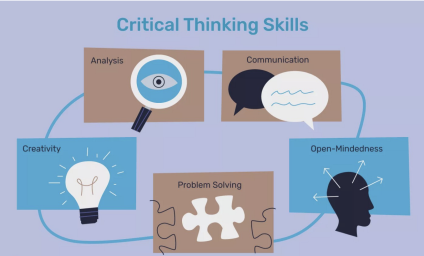
How to Develop Creative and Critical Thinking
Thinking may come naturally to us but constructive reasoning certainly does not. Constructive thinking is a skill.
Thinking may come naturally to us but constructive reasoning certainly does not. Constructive thinking is a skill. It is certainly not true that we are naturally endowed with the ability to think clearly and logically; without learning how and without practicing. The same commitment, training, and skill that is required to be a good golfer, for playing tennis, building houses, or for playing some musical instrument are also required in order to be a good thinker.
People who have never worked to develop their conceptual capabilities should no more expect to think clearly and logically than those people who have never learned and never practiced can expect to find themselves good golfers, house builders, or violinists. Critical thinking is the basis of effective reasoning and the foundations of constructive science.
The course is broken down into five main sections. The first section looks at human cognition to understand the basic biological and evolutionary constraints placed on us when it comes to effective reasoning. Here we will talk about how the brain works, look at some of the central insights from cognitive science and talk about some of the many limitations and flaws prevalent within human cognition.
In the second section, we will look at logic. Although critical thinking is much more than just logic, reason and logic lay at the heart of constructive thinking. Here we talk about the various different forms of logic, inductive, deductive, formal, informal etc.
In the third section, we will start our discussion on the theme of reasoning, the process through which we take in information and use some logic to infer conclusions. A central theme here will be that of subjective and objective reasoning in trying to understand what it takes to achieve some kind of objectivity in our conclusions.
The fourth section deals with the process of reasoning as we take it apart to understand the elements of effective reasoning. Here we will talk about the standards of reasoning, creative thinking, divergent and convergent thinking and more.
In the final section, we discuss the important topic of argumentation, how people with diverse, or even divergent opinions, come to resolve their differences in order to develop new knowledge, make decisions, or reach consensus on some issue.







